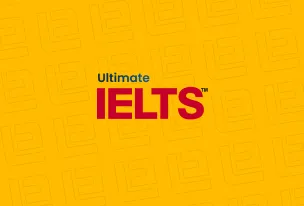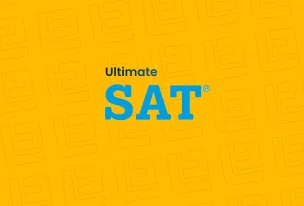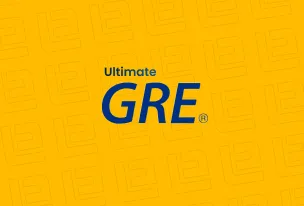For those seeking higher education in English-speaking nations, a prerequisite is showcasing proficiency in the English language. A range of English language exams are globally accepted by universities, and our focus today centers on two prominent ones: IELTS and TOEFL.
Demystifying IELTS and TOEFL
Before we proceed, let’s decipher the acronyms. IELTS, standing for the International English Language Testing System, and TOEFL, denoting the Test of English as a Foreign Language, hold pivotal roles in this landscape.
Read also: Find out how much the IELTS test costs and the best preparation tips
Selecting the Right Examination for University Applications
Prospective university applicants typically undertake either the IELTS Academic test or the TOEFL iBT. These assessments are conveniently administered at local test centers within one’s own country.
Take IELTS as an example; it boasts a staggering presence across more than 3,000 test centers dispersed across over 60 countries. This extensive network offers unparalleled options and flexibility, a feature that sets it apart from many other English language examinations. To locate the nearest test center, follow the IELTS and TOEFL links. It’s noteworthy that the test fees are set by the specific test center in your country, and you can readily obtain cost details by contacting them directly.
Comparing IELTS and TOEFL

Both IELTS and TOEFL hold esteemed positions within the academic sphere, with recognition from top universities across the globe. However, they diverge significantly in terms of structure and question types. Read on to delve into the specifics of each test, aiding your decision-making process.
Read also: TOEFL iBT: Essential Online English Test for Improvement
Deciphering the IELTS and TOEFL Ownership
Ownership of these two examinations resides with distinct testing organizations. IELTS enjoys joint ownership by the British Council, Cambridge Assessment English, and IDP Australia. Cambridge Assessment English is responsible for crafting and overseeing the test. Administration of the test centers, however, falls under the jurisdiction of the British Council and IDP Australia.
In contrast, the TOEFL iBT is owned, composed, and managed by the Education Testing Service (ETS), an esteemed organization headquartered in the United States.
Parallel and Divergent Features
|
Exam |
Method |
Duration |
Scores |
Results |
|
IELTS Academic |
Paper-based, computer-based, and online |
Less than 3 hours |
0-9 |
3-13 days |
|
TOEFL iBT |
Paper-based, computer-based, and online |
Less than 2 hours |
0-120 |
4-13 days |
Read also: TOEFL Score Required at Several Leading Universities
Assessment Mechanisms
Both examinations evaluate listening, reading, writing, and speaking skills. However, the manner in which they do so varies significantly:
IELTS Academic:
-
Listening: 30 minutes, 40 questions
-
Reading: 60 minutes, 40 questions
-
Writing: 60 minutes, 2 tasks
-
Speaking: 11-14 minutes, 3 parts
TOEFL iBT:
-
Listening: 36 minutes, 28 questions
-
Reading: 35 minutes, 20 questions
-
Writing: 29 minutes, 2 tasks
-
Speaking: 16 minutes, 4 tasks
Question Types
Both IELTS and TOEFL incorporate diverse question types. While IELTS features multiple-choice questions, matching tasks, and summary completion, TOEFL predominantly employs single-answer multiple-choice questions along with matching and multiple-answer formats.
Read also: What is the minimum IELTS test score for studying abroad? There is a University of Your Destination…
Listening and Language Accents

A prevailing misconception posits IELTS as exclusively British English and TOEFL as solely US English. The truth, however, is that both tests encompass a spectrum of English accents, encompassing North American, British, Australian, and New Zealand variations.
Exploring the Listening Sections
IELTS Listening Test:
- Four sections, each comprising ten questions
- Parts 1 and 2 set in everyday context, Parts 3 and 4 in educational and training context
- Parts 1 and 3 involve multiple speakers; Parts 2 and 4 feature monologues
TOEFL iBT Listening Test:
- Three lectures with six questions each
- Two conversations, each with five questions
Navigating the Reading Segments
IELTS Academic Reading Test:
- Three passages, with a cumulative word count of 2,150-2,750
- Questions encompass a range of types
TOEFL iBT Reading Test:
- Two passages, each approximately 700 words
- Questions designed around passage content
Read Also: 3 Important Functions of the IELTS Test, Don’t Miss This…
Mastering the Writing Components
Both IELTS and TOEFL feature two writing tasks:
IELTS Writing:
- Task 1 presents data graphically, requiring a minimum of 150 words
- Task 2 involves responding to a viewpoint, argument, or problem, with a minimum of 250 words
TOEFL iBT Writing:
- Integrated task involving reading, listening, and writing
- Independent essay expressing an opinion in an online classroom discussion
Comparing Speaking Formats
IELTS Speaking:
- Conducted face-to-face or via video call with an examiner
- Comprises three parts: personal information, task preparation, and discussion
TOEFL iBT Speaking:
- Responding to questions using a microphone
- Evaluation involves a blend of AI (computer-rated) and human review
Read also: TOEFL Courses Jakarta: Improving English Proficiency for Academic Purposes
Understanding Score Systems

IELTS employs band scores ranging from 0 to 9 for each skill, culminating in an overall band score. On the other hand, TOEFL iBT assigns scores from 0 to 30 for each skill, with a total score spanning 0 to 120.
Selecting the Optimal Test
When determining the appropriate examination, take into account your language proficiency, preferred testing formats, and the requirements of your chosen institutions. Engaging in practice tests for both IELTS and TOEFL can provide valuable insights into the best fit for your abilities.
Preparing for Success
Quantifying the time needed for IELTS preparation is akin to gauging the length of a string—it varies substantially. Key factors include your current English proficiency level and your target band score. A realistic approach involves acknowledging your current proficiency, desired achievements, and timeline. IELTS preparation courses, spanning four to six weeks, primarily focus on refining test-taking techniques rather than radically elevating language skills. To significantly enhance your band score, prioritize comprehensive enhancement of your English language proficiency.
Choosing Between TOEFL and IELTS
TOEFL or IELTS? Perhaps this question has haunted the minds of many who plan to continue their studies or pursue a career abroad. The answer to this question is not absolute, as the choice between TOEFL and IELTS depends on each individual’s goals.
TOEFL and IELTS are two of the most commonly used English language proficiency tests worldwide. Although both are designed to measure a person’s English language abilities, they have significant differences in format and approach.
It’s important to understand that each university or institution abroad has different English language proficiency test requirements. Therefore, it’s essential to check the requirements of your target university or institution before deciding which test to take. If the university requires TOEFL, then TOEFL is the right choice. Similarly, if the requirement is IELTS, then IELTS should be taken.
Read this article to find out the expected TOEFL scores by top universities abroad.
However, what if your target university or institution accepts both TOEFL and IELTS? In this case, you have the freedom to choose the test that aligns best with your strengths and preferences.
Let’s discuss some factors that can help you decide between TOEFL and IELTS:
Your Goal:
Before choosing a test, consider your objective. If you plan to study in the United States, TOEFL might be the primary choice because many U.S. universities accept TOEFL scores. On the other hand, IELTS may be more relevant if you intend to live or work in countries like New Zealand.
Comfort with American English or Various Accents:
TOEFL assesses English language proficiency with an emphasis on American English, while IELTS includes various accents in the listening test. If you are more comfortable with American English, TOEFL might be the better fit for you. However, if you want to test your comprehension of different accents, IELTS could be a choice.
Question Types:
TOEFL consists of many multiple-choice questions and listening tests that require a deep understanding of audio recordings. If you feel more comfortable with this format, TOEFL may be suitable. In contrast, IELTS offers various question types, including listening, reading, writing, and speaking.
The difference between TOEFL, IELTS, TOEIC, and PTE?? Learn the differences between these English language tests and choose which one is suitable for you, here.
Comfort with Technology:
TOEFL is a computer-based test, while IELTS includes face-to-face listening and speaking tests with an examiner. If you are accustomed to using a computer and microphone, TOEFL might be more suitable. However, if you prefer direct interaction with an examiner, IELTS could be a choice.
Writing and Reading Skills:
Both TOEFL and IELTS test writing and reading skills, but the formats are slightly different. TOEFL requires good typing skills, while IELTS requires legible handwriting. Additionally, IELTS expects handwritten essays to be easily readable.
Speaking Proficiency:
For some individuals, speaking directly with an examiner in the IELTS speaking test can be a challenge. However, it also provides an opportunity for real-life, direct interaction, which can enhance speaking skills.
In the end, the decision about which English language proficiency test is most suitable is up to your own choices and preferences. Consider your goals, comfort with test formats, and your abilities in various aspects of the English language when deciding between TOEFL and IELTS. With proper preparation, you can succeed in whichever test you choose. Hopefully, this article helps you feel more confident in determining which test to take.
Read also: IELTS Preparation for Success: The Benefits and Importance of Simulation
Conclusion
Deciding between IELTS and TOEFL, two of the most recognized English language proficiency exams, is a significant step for individuals seeking opportunities to study, work, or live in English-speaking environments. Each exam has its distinct features, formats, and test structures, catering to diverse preferences and goals. As you weigh the factors discussed in this article, such as exam content, format, scoring, and institutional preferences, remember that both IELTS and TOEFL are valuable assessments of English language skills. The choice between them should align with your specific objectives and the requirements of your target institutions or organizations. Ultimately, both exams are pathways to showcasing your language proficiency and embarking on a successful journey toward your aspirations.
If you plan to pursue studies in English-speaking countries, it is necessary to review the admission requirements of your interested institutions. Many universities and programs in various countries accept both test types, but some may prefer one over the other. Ensure you understand the requirements and preferences of the institution before choosing which test to take.
The best advice is to prepare thoroughly, not only in terms of English language knowledge but also in terms of the test format you will take. Practicing with past test questions, enrolling in preparation courses, and identifying areas for improvement are crucial steps toward succeeding in these tests.
FAQs
What is the primary difference between IELTS and TOEFL?
IELTS and TOEFL are both English language proficiency exams, but they differ in terms of format and scoring. IELTS includes both Academic and General Training versions, while TOEFL is typically offered in an Internet-based (iBT) format.
Which exam is better for studying abroad?
Both IELTS and TOEFL are widely accepted by universities around the world. Research the requirements of your target institutions to determine which exam they prefer.
Is IELTS accepted in the United States?
Yes, IELTS is accepted by many universities and institutions in the United States. Checking the exact requirements of the institutions you are interested in is vital.
Can I take both IELTS and TOEFL?
Yes, you can take both exams if you’d like. However, it’s advisable to focus on the exam that aligns with your goals and the requirements of your preferred institutions.
Is there a difference in difficulty between IELTS and TOEFL?
The difficulty level of both exams can vary from person to person. Some test takers find certain sections of one exam more challenging than the other. It’s recommended to familiarize yourself with the content and format of each exam.
Can I use my IELTS or TOEFL score for immigration purposes?
Yes, both IELTS and TOEFL scores can often be used for immigration purposes in English-speaking countries. However, requirements may vary, so check the specific immigration guidelines of your target country.
How long are the TOEFL and IELTS results good for?
IELTS scores typically remain valid for two years following the exam date, whereas TOEFL results often remain valid for the same amount of time.
Which exam is better for business or professional purposes?
Both exams can be suitable for business or professional purposes. Consider the requirements of your industry and target institutions when making your decision.
Are there any resources to help me prepare for IELTS or TOEFL?
Yes, there are numerous study materials, online resources, and practice tests available for both exams. Consider official materials from the exam providers and reputable test prep companies.
Can I switch from one exam to the other if I’m not satisfied with my score?
Yes, you can choose to take a different exam if you’re not satisfied with your score. However, it’s advisable to understand the content and format of the new exam before making the switch.
Choosing between IELTS and TOEFL is a decision that should be based on your personal goals, the requirements of your chosen institutions, and your familiarity with the exam formats. Both exams offer valuable opportunities to demonstrate your English language proficiency and set the stage for success in academic and professional pursuits.
By understanding the differences and similarities between IELTS and TOEFL, as well as the requirements of your target institution, you can make an informed decision in selecting the most suitable test for your educational or career goals. Thorough and dedicated preparation will provide you with a better opportunity to achieve your desired scores and open doors to success in the future.
Now, you know what distinguishes TOEFL and IELTS. Let’s start preparing for TOEFL or IELTS to achieve the scores required by the universities you are aiming for. There are plenty of online tests available on the internet, but still feeling confused? Join us now.





